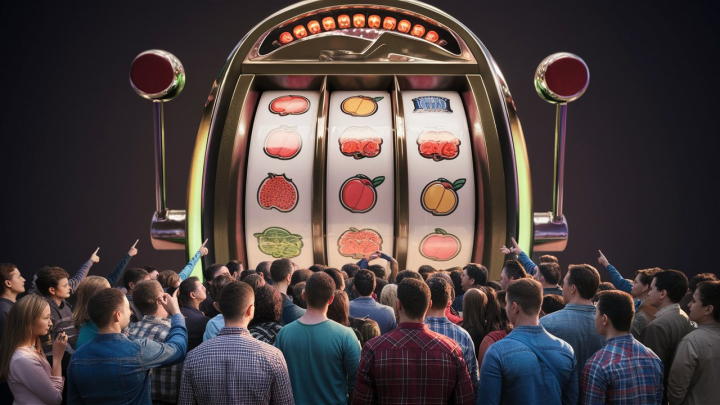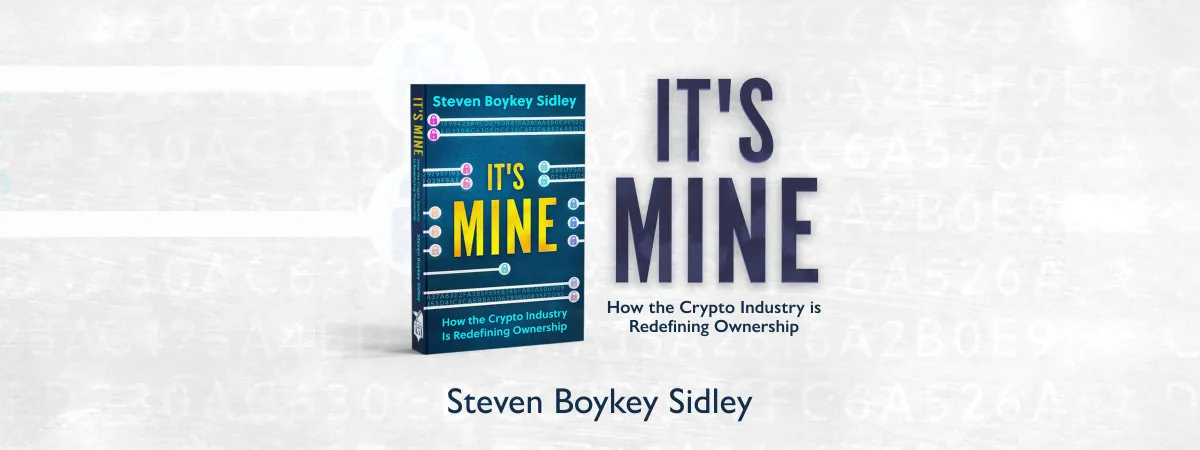GUEST ESSAY
Investment as gambling – Financial Nihilism and the rise of meme stocks

Many young people have lost faith and are turning, with alarming recklessness, to increasingly risky financial behaviour.
Once upon a time, if you were an average individual of average means with a modest amount of savings, and you wished to make an investment for your own or your family’s future, you (or a trusted partner) might research investments – stocks or bonds or real estate or even simple bank products. Then you would choose to park your money somewhere and wait patiently for it to grow. What you would not do is go to a casino and feed your precious savings into a slot machine with the hope of hitting the jackpot.
That would be just stupid, right?
Not anymore, it seems.
In the past few years we have seen an epidemic of what is now being called “financial nihilism”, an expression coined in 2021 by Demetri Kofinas, the host of the Hidden Forces podcast. The term is now in wide use, especially across social media. It has a dramatic ring to it, as an awkward mix of unlikely linguistic bedfellows.
The definition is loose, but financial nihilism generally refers to an increase in reckless investments and gambling by people who believe that the system is rigged against them. Convinced that there is no point in following the cautious saving advice their parents gave them – they are never going to be able to afford that house, that car or that overseas holiday anyway – and with the door to upward mobility closed to them, they may as well take a chance or three.
Let’s start with home ownership. (The following statistics are from the US, but the pattern is the same almost everywhere such figures are collected.) In the 1950s and 1960s the prospect of owning a house in which to raise a family and grow old was well within the reach of young people, including blue-collar workers; the price of a home was affordable in relation to average salary levels.
Now consider this. The average price of a home for both Baby Boomers and Gen Xers was 4.5 x their annual salary. By the time Millennials entered the market it had jumped to 5.5 x annual salary. Now, as Gen Y graduates (under 27 years old) start looking, they find the price of a starter home is 7.5 x annual salary, making home ownership simply unaffordable for most of them (source: Federal Reserve Economic Data). You can see the trend in other homeowner stats as well. Baby Boomer buyers owned 33% of homes in the US when they were 25 years old. Today’s 25-year olds own only 13% (source: longtermtrends.net).
Other statistics both here and abroad tell the same story – from the collapse of reasonably salaried middle-class jobs and the rise in income inequality, to the escalating costs of college education, the threat of AI and the real (or perceived) fear of man-made catastrophes.
If you are just entering the job market, you might well be forgiven for feeling powerless, without any financial security to build a future on.
Whether all this will right itself via the pendulum of economic cycles is not really the point. What is significant is that many young people have lost faith and are turning, with alarming recklessness, to increasingly risky financial behaviour.
Actually, recklessness is too pallid a word.
If one had to peg the start of this era of financial nihilism, it would probably be the GameStop phenomenon that happened in early 2021. GameStop (GME) was a struggling, publicly listed video retailer whose future looked bleak. Many well-resourced hedge funds did some fancy research and predicted that the stock would go lower, so they sold short, but then a bunch of amateur traders on Reddit, a group called r/wallstreetbets, decided to stick it to the institutions, and they started buying GME en masse.
The price of GME went from $3 to $483 and several institutions got badly hurt. A few had to seek bailouts to avoid bankruptcy.
Why did a motley crew of traders do this? It had nothing to do with a sober analysis of GME’s commercial prospects. Few of the Redditors knew each other, they simply hung out together on Reddit and discussed their strategy, guessing that, if they could push the stock up high enough with many small trades, then the hedge funds would have to go long to cover their plummeting short bets, further fuelling the price rise.
Everyone knew it was a gamble, a long shot, but they were right. However, while early entrants won big, the rest lost when the price came back to Earth. The gamble was financially nihilistic for all but a few.
And then, even more recently, there is a kind of madness erupting in certain crypto neighbourhoods. Take the cryptocurrency called $TRUMP, for example. It is one of a class of cryptocurrencies called memecoins. $TRUMP (or MAGAcoin, as it is commonly known) doesn’t do anything and doesn’t promise to do anything. It just asks to be bought on the basis of its name. About $250-million worth of buyers have jumped in, presumably in the hope that its price will go up. (If it does, they may also be donating to Trump who was given a few million dollars’ worth of the coin by its creators). To be fair, there is another useless cryptocurrency called $BODEN, associated with the current president, which is doing pretty well too.
We don’t have time to talk about the thousands of other memecoins, all useless, holding hundreds of millions of (presumably) hopeful dollars. Low-odds gambling by millions of players. Self-destruction writ pretty large. Nihilism.
What about traditional gambling, long the home of get-rich-quick dreamers? The rate of spending on online gambling has risen by an astounding 200% since 2019. It is a massive sector and a surge of 200% in five years is a remarkable statistic, a metric of either financial desperation or who-gives-a-shit brazenness. Here at home, a trip to a local casino is dispiriting, to say the least, given the demographic of those standing at the slot machines, some with babies on their backs.
It is uncomfortable to watch all this from the sidelines, especially when most adherents to the credo of financial nihilism will simply be ruined as the odds inevitably inflict their cruel maths. Travis Kling, the much-followed hedge fund manager, has written extensively about this subject. In a recent post he issued a simple warning to those driven by disaffection and hopelessness:
“The rich get richer while the American Dream of upward mobility slips out of reach for the majority. The drivers of Financial Nihilism and incentive structures that come along with it are simply too overwhelming… when the numbers don’t add up, might as well swing for the fences even when you’re more likely to strike out.”
To join this narrative is to skate on thin ice, but perhaps, when you feel locked out in the cold, forever looking in, thin ice seems better than freezing water. DM
Steven Boykey Sidley is a professor of practice at JBS, University of Johannesburg. His new book It’s Mine: How the Crypto Industry is Redefining Ownership is published by Maverick451 in SA and Legend Times Group in UK/EU, available now.



















 Become an Insider
Become an Insider
Comments - Please login in order to comment.